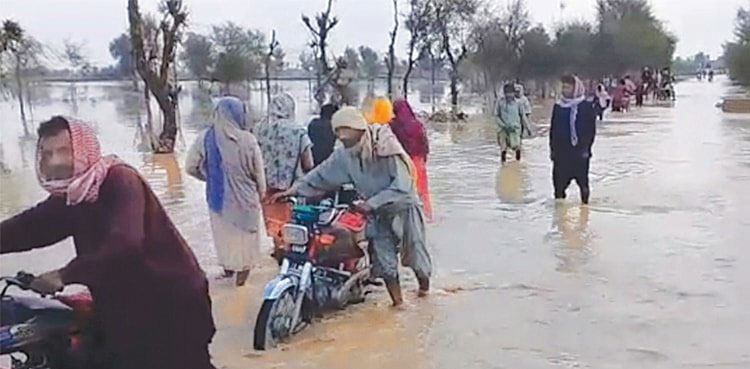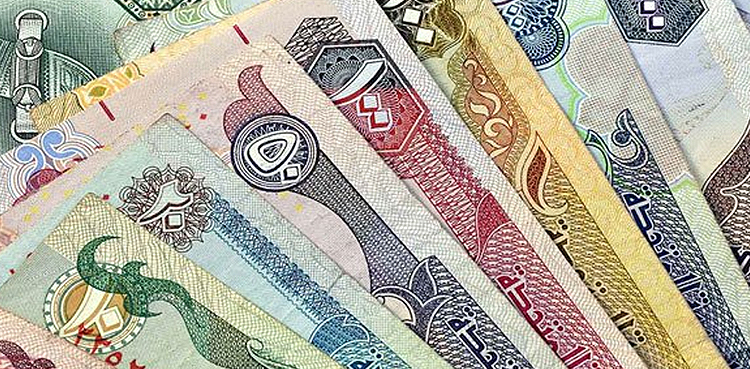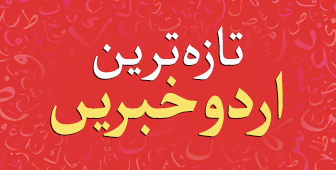Air chief meets US military, political leadership during his visit
Pakistan Air Force (PAF) Chief Air Marshal Zaheer Ahmed Baber Sidhu undertook an official visit to the United States (US) the first by a serving PAF Air Chief in over a decade, the Inter Services Public Relations (ISPR) said.Air Chief Marshal Zaheer Babar Sidhu held meetings with top military and political leadership in the US. The meetings took place at the State Department, the Pentagon and Capitol Hill, the military’s media wing said.This is the first visit of a Pakistan Air Force chief to the US in the last decade.During the visit, Chief of the Air Staff held a series of high-level meetings with senior U.S. military and political leadership. At the Pentagon, he called on Ms. Kelli L. Seybolt, Secretary of the Air Force (International Affairs), and General David W. Allvin, Chief of Staff of the United States Air Force, a state-run news agency, APP, reported.https://www.youtube.com/watch?v=-iiC35pUMKUDuring the meetings the discussions centered around advancing bilateral military cooperation, enhancing interoperability and exploring avenues of joint training & technology exchange. Chief of the Air Staff highlighted the historic and multifaceted relationship between Pakistan and United States, particularly in the domains of defence and security cooperation.Read More: ‘Honoured to meet him’: Trump says after meeting Field Marshal Asim MunirChief Air Marshal Zaheer Ahmed Baber Sidhu reiterated Pakistan’s resolve to further enhance the existing ties in the realms of military-to-military cooperation and training between the Air Forces of the two countries. The two sides also agreed upon the continuation of high-level military engagements in future through senior-level interactions.The PAF's chief visit followed Chief of Army Staff (COAS) Field Marshal Syed Asim Munir's visit to the US where he met with President Donald Trump and others.The US president hosted Field Marshal Syed Asim Munir on luncheon and described the meeting as an ‘honour’ for him.“I was honoured to meet him today,” Donald Trump said. The US president also expressed gratitude to Syed Asim Munir for his role in averting war with India.Following a closed-door lunch with Pakistan’s army chief, Donald Trump also revealed that trade negotiations are ongoing with Pakistan.

Karachi man burned alive in shocking case of domestic violence
KARACHI: In a terrible, heart-stopping incident, in Karachi, a man named Arthur was burned alive by his in-laws in the city’s Ittehad Town area as a part of domestic violence, ARY News reported.The tragic event extended after Arthur was purportedly tempted to his in-laws’ residence by his wife, Mishie, under the guise of a reunion.According to criminal investigators, Arthur was called to the house by his wife and was attacked upon arrival.The gate was allegedly locked behind him, and he was the victim of physical assault. Before succumbing to his injuries, Arthur named his mother-in-law, Samina, along with two male relatives and others, as those who poured petrol on him and set him on fire. Neighbours hurried to the crime scene after hearing his yells and shifted him to the hospital, where his treatment started in the Civil Hospital’s burns ward for several days. Despite medical efforts, Arthur expired from his injuries.Before his death, Arthur’s video statement was recorded identifying six individuals, including women, as responsible for the attack.Police have therefore detained his father-in-law and uncle-in-law, while raids are in progress to arrest the remaining suspects.This case of a man burned alive by his in-laws has renewed concerns over domestic violence in Karachi, with human rights activists calling for expeditious justice and stronger protections for victims of familial abuse.Authorities have vowed to pursue the domestic violence case strictly, and the video evidence provided by Arthur is likely to play a vital role in the prosecution.Read More: Man tortures infant nephew to ‘teach brother-in-law a lesson’ in LarkanaEarlier, in a shocking act of violence, a man filmed himself torturing his own nephew in an attempt to teach his brother-in-law a lesson. He later shared the disturbing video on social media, where it quickly went viral.According to reports, the man, identified as Shakeel Ahmed, recorded a video of himself putting green chilli into the mouth of his six-month-old nephew and physically hurting the baby.The shocking video quickly went viral on social media, prompting SSP Larkana, Ahmed Faisal Chaudhry, to take notice.

Rescue 1122 pulls man from Haro River flood under CM alert strategy
LAHORE: A miraculous rescue was revealed near Marri Kunjour in Attock as Rescue 1122 saved a man from sinking in the Haro River, following a sudden flash flood, ARY News reported.The 45-year-old sheepherder, astonished by the Haro River flood, was rescued by a highly trained emergency team, thanks to Maryam Nawaz's monsoon preparation initiative.According to authorities, the incident happened when the shepherd was taken away by a powerful current while browsing livestock.Upon getting the alert, Rescue 1122 saved him with a quick response team that descended hundreds of feet into the river bottom to save the stuck individual.The man, visibly distressed but uninjured, showed profound gratitude, saying, “Allah Almighty granted me a new life.”This life-saving Haro River flood operation was made possible by the preventive orders issued by the Punjab Chief Minister, Maryam Nawaz.As part of her monsoon readiness strategy, she had instructed all commissioners, deputy commissioners, and rescue teams across the province to remain on high alert.The quick collaboration between local administration and emergency services guaranteed a timely response that prevented a potential tragedy.CM Maryam Nawaz personally checked the rescue operation virtually and later lauded the Attock administration and the Rescue 1122 team for their courage and competence.This incident underlines the efficiency of her active ascendancy during the monsoon season.The Rescue 1122 saves man operation not only expresses the devotion of emergency respondents but also reflects the importance of the master plan in disaster management.With monsoon activity increasing across Punjab, such preparedness is proving vital in protecting lives.Read More: CM Punjab launches free higher education for workers’ childrenOn the directives of Punjab Chief Minister Maryam Nawaz Sharif, a major step towards the welfare of industrial and mine workers has been taken, with the launch of a free higher education initiative for their children.Under the Workers’ Children Free Education Program, qualified students will be able to get admission in seven campuses of COMSATS University, with the Punjab government taking complete responsibility for their education and funding.

Loudspeaker limits imposed on Mumbai Mosques
MUMBAI: As a part of the Bombay High Court ruling, Mumbai police have removed over 1,500 loudspeakers from religious sites across the city, in a step that has sparked legal and public debate. The court admitted in January 2024 that using loudspeakers is not a vital religious practice, warning officials to impose noise regulations more strictly.The Mumbai loudspeaker ban arises from requests filed by two housing associations, who claimed that the usage of loudspeakers, especially during early morning azan (call to prayer), was creating noteworthy disturbance to residents.The court sided with the requesters, affirming that while religious freedom is protected, it must be together in public peace and health.According to the Mumbai Police Commissioner Deven Bharti, the action was confirmed, highlighting, “Loudspeakers have been banned, with temporary exclusions permitted only during religious festivals. We will confirm these devices are not used again without proper authorisation.” In reply to the Mumbai loudspeaker ban, numerous mosques have opted for the technology. At least six mosques have started using the Online Azan mobile app, which streams the azan directly to worshippers’ phones in real time. This invention aims to sustain the sacred experience while obeying legal restrictions. However, the crackdown has not gone unopposed. Five mosques in Mumbai’s Vikhroli suburb have submitted a petition in the Bombay High Court, claiming discriminatory targeting and procedural violations by the police.Read More: India says it will never restore Indus water treaty with Pakistan The court has sent notices to the Mumbai Police and the Maharashtra Pollution Control Board, requesting a response by July 9.The Bombay High Court ruling regarding the azan has elicited varied reactions; some see it as an essential measure to reduce noise pollution, while others contend that it violates religious freedoms.Additionally, there have been comparisons made to similar prohibitions in other areas, such as a contentious ban imposed by Israeli forces in the Palestinian city of Jenin.As legal proceedings continue, it remains to be seen whether the Mumbai loudspeaker ban will become a permanent policy or face reversal through judicial review.For now, mosques across the city are delivering the azan without amplification, marking a significant shift in the city’s religious soundscape.

Pakistan Railways increases fares following petroleum prices hike
ISLAMABAD: The Pakistan Railways on Wednesday announced increasing fares for passenger, express, and mail trains, marking the second increase within 15 days, ARY News reported.According to a notification issued here, the Pakistan Railways a 2 percent fare increase will take effect from July 4 for express and passenger trains. The 2 percent fare hike will also extend to advance bookings as per the notification.The decision was taken in the wake of rising petroleum products prices including diesel.According to an official, the Pakistan Railways had been incurring a monthly loss of approximately Rs 109 million due to the rising cost of diesel.The railway department directives have been issued to the Director of IT and the DS to ensure compliance with the updated fares.It may be noted here passenger train fares were raised by 3 percent, while freight train fares saw a 4 percent increase on June 18.Read More: Pakistan Railways to provide free Wi-Fi service in 40 trainsThe federal government increased petroleum products' prices for the ongoing fortnight ending on July 15, pushing the petrol price up by Rs 8.36 per litre.As per a notification issued by the Ministry of Finance, the petrol price was increased by Rs14.80 per litre, bringing the new petrol price to Rs266.89 per litre.Similarly, the price of high-speed diesel was raised by Rs10.39 per litre, with the new rate set at Rs272.98 per litre.

New profit rates on saving accounts, certificates announced
The Central Directorate of National Savings revised profit rates for several investments aimed at helping individuals grow their savings with confidence over time.Special Saving Certificate, Defence Savings Certificate, Regular Income Certificate,Behbood Saving Certificate, and Shuhda Family Welfare Account are among different options provided by the Central Directorate of National Savings.The options with the highest current rates—13.20 percent—are the Shuhda Family Welfare Account, Behbood Saving Certificate, and Pensioners Benefit Account. These programs are especially made to help widows, retirees, and martyrs' families.The rates have been revised downward, with the Defence Savings Certificate and Regular Income Certificate now offering 11.76% and 11.16%, respectively.While Islamic investment options like Sarwa Islamic Term and Saving Accounts are currently yielding 9.75 percent, the rate for savings accounts remains at 9.50 percent.Investors can buy these certificate through any National Savings Centre, authorised branches of scheduled banks, or directly from the State Bank of Pakistan.Minors can also invest, either on their own with the help of a guardian or in joint accounts with adults or other minors. In joint investments, the payment can be collected by either one or both of the named holders. nts are now yielding 9.75pc, a notable decrease from their previous rates. Overall, this revision indicates a general decline in profit rates across most National Savings instruments. New profit rates Investment Type Rate Special Saving Certificate 10.60-10.90 Defence Savings Certificate 11.76 Regular Income Certificate 11.16 Saving Account Rate 9.50 Pensioners Benefit Account 13.20 Behbood Saving Certificate 13.20 Shuhda Family Welfare Account 13.20 Sarwa Islamic Term Account 9.75 Sarwa Islamic Saving Account 9.75 New profit rates can also be checked at the official website of the National Savings.

Sindh's curriculum best in Pakistan: education minister
KARACHI: Sindh Education Minister Syed Sardar Ali Shah has dismissed the remarks made by Awaam Pakistan Party (APP) Secretary General Miftah Ismail and labeled the Planning Commission of Pakistan’s District Education Program Index report as ‘contrary to facts’.In a statement issued here, the provincial education minister said that the report, cited by Miftah Ismail, was prepared ‘without understanding ground realities.Syed Sardar Ali Shah’s remarks came in a response to Miftah ismail’s presser who accused the Pakistan People’s Party’s Sindh government of pushing the province back in education and other sectors.“Sindh had a literacy ratio of 58 per cent in year 2008, which has dropped to 57.5percent in year 2025. During this period 4,000 billion were spend over education in Sindh. In Sindh three-fold children drop out of schools in comparison to Khyber Pakhtunkhwa,” Miftah said while pointing out the report.Syed Sardar Ali Shah, in response, criticised the institutions in Islamabad, stating, “They play the role of mere ‘desk analysts’ without understanding ground realities.”He said that the data in the referenced report dates back to 2022-23, a period marked by severe floods in Sindh that displaced people until early 2023, thus skewing the reported facts.“Deliberate attempts are being made to portray Sindh negatively without verifying the truth,” the minister added. Syed Sardar Ali Shah said that the as per the same report, school enrollment has increased in Sindh.Read More: Sindh pushed back in education, other sectors, says Miftah Ismai“The same report shows 3.2 percent enrollment increase in primary, 7.6 percent in middle, 5 percent in high, and 8.8percent in higher secondary—yet also shows a decline in literacy rates, which is a clear contradiction.”While criticising the ‘lack of consultation’ with provincial departments before such surveys, the minister said that education is a provincial matter.‘Sindh’s curriculum better than other provinces’Syed Sardar Ali Shah also highlighted what he called achievements of the Sindh’s education departments. He said that as per UNESCO analysis, Sindh’s curriculum is superior to other provinces.The minister added that 90,000 teachers were recruited ‘on merit’ which he said improved standards and enrollment.He also questioned Miftah Ismail’s ‘silence’ on shortage of around 100,000 teachers in Punjab and conditions of schools in Khyber Pakhtunkhwa.“As a former finance minister, Miftah Ismail should know that 92percent of the education budget goes to salaries,” Syed Sardar Ali Shah added.

CM Gandapur challenges opposition with no-confidence dare
PESHAWAR: Khyber Pakhtunkhwa Chief Minister Ali Amin Gandapur said that the Pakistan Tehreek-e-Insaf (PTI) is united and firm despite rising political pressure and speculation over the future of the provincial government, ARY News reported.Ali Amin Gandapur highlighted that the party stands firmly behind its vision and leadership. “Our opponents believe they can tear us in parts, but they are mistaken,” Ali Amin said. “We are together under the vision of our founder.”Ali Amin Gandapur revealed that he was imprisoned before the incidents of May 9, declaring that he faced pressure to make statements against the founder of PTI. He also challenged the opposition to follow a no-confidence motion, stating, “If the PTI government is brought down constitutionally, I will leave politics.”In reply to rumours regarding the implication of Governor’s Rule, he confidently invited the federal government to go ahead and execute it, saying, “Try it and see.”During the PTI party’s press conference, Ali Amin Gandapur also addressed party cohesion: “Anyone going against the founder’s assigned roles is revealing the party,” he warned.In the meeting, Salman Akram Raja, PTI’s Secretary General, enclosed the party’s fight as one for “rights, humanity, and constitutional integrity.” He repeated that the February 8 elections were exploited, resonating with PTI’s old claims of electoral injustice.Read More: Tarar calls to oust CM Gandapur over Swat River tragedy Junaid Akbar, President of PTI KP, emphasised the difference between political workers and speculators. “We value the voice of our workers. Despite internal differences, we will unite on the founder’s call,” he said.Barrister Gohar Ali Khan, PTI Chairman, reiterated the party’s promise to defend the KP Assembly. “Anyone who wishes to bring a no-confidence motion is welcome to try,” he said, adding that PTI holds a sanctioned position in the province.The PTI party's press conference comes within a raging political context. The Supreme Court’s current decision stripped PTI of nearly 80 reserved seats, causing doubts of deserting its lawmaking strength.In reply, PTI organised an emergency meeting and re-administered loyalty oaths to its politicians.The PTI party's press conference served as a strategic move to project strength and unity at a time when PTI faces both internal dissent and external pressure.

NCCIA uncovers Multan cybercrime network
MULTAN: In a recent crackdown, the National Cyber Crime Investigation Agency (NCCIA) uncovered an urbane cybercrime network operating out of Multan, ARY News reported. The group was running an online fraudulent scam to both Pakistani and foreign citizens through extravagant social media scam operations.The NCCIA confirmed that in the Multan cybercrime arrest, the main suspect has been caught, identified as Arsalan, from the Dunyapur area of Multan.Officials exposed that the suspect was part of a big consortium that was operational on social media platforms like WhatsApp and Facebook to trap victims with fake game shows, marriage proposals, and foreign aid schemes.The gang allegedly extracted millions of rupees by showing victims fake videos of foreign currency and promising financial backing in exchange for "tax" payments.According to authorities, the group was also using fake profiles on different matrimonial platforms to establish trust with victims before the execution of the financial fraud.Victims were convinced to transfer large sums of money under various pretences, including processing fees and customs duties.In a separate operation, the NCCIA also arrested six other individuals from Multan’s Dunyapur area, including Muhammad Rashid, Muhammad Isa, and Muhammad Younas.These suspects were also found using fake social media platforms like WhatsApp accounts and mimicking identities on Facebook to execute scams via mobile wallet services like JazzCash.The Multan cybercrime arrest is a wider clampdown on digital financial crimes in Pakistan. Officials estimate that the total fraud may exceed Rs. 20 billion, with dozens of inquiries already underway.Public is urged to remain vigilant and report suspicious online activities. Legal proceedings against the arrested individuals are ongoing, and further arrests are expectedRead More: Rs20 bln online fraud, NCCIA arrested two in MultanIn a separate crackdown, the National Cybercrime Investigation Agency (NCCIA) has arrested two suspects involved in committing Rs20 billion online fraud in Multan.The suspects, recognised as Samar Abbas and his assistant, were arrested during a targeted operation, while efforts are in progress to arrest a third accused, Abdul Hai.According to authorities, the suspect had been on the run for over a year and was apprehended in the Layyah district.

AC among five killed in Bajaur blast
BAJAUR: At least five persons including Assistant Commissioner Nawagai Faisal Ismail were killed in a blast targeting the officer's vehicle in Bajaur, KP, ARY News reported on Wednesday.According to police, a powerful blast near the Phatak Mela area of Bajaur left five people dead and several others injured. As per Deputy Commissioner Bajaur Shahid Ali Khan, the blast took place near Mela Ground in the Phatak Mela area, where a remote-controlled explosive targeted a government vehicle. The incident resulted in the deaths of Tehsildar Abdul Wakeel, two police officers, and a bystander. Additionally, 11 individuals, including five police personnel, were injured and transported to nearby medical centers for care. No organization has yet claimed responsibility for the attack. Law enforcement officials also confirmed that the blast was a targeted attack on the vehicle of the assistant commissioner. The nature of the explosive device is yet to be officially determined, but initial reports suggest it was a planted bomb.District Police Officer (DPO) stated that the explosion caused significant casualties, with rescue teams swiftly reaching the scene to transfer the injured to nearby medical facilities in Bajaur.The area was immediately cordoned off by security forces, and an investigation has been launched.Read more: SAPM Mubarak Zeb’s house partially damaged in Bajaur rocket attackLast month, the house of Special Assistant to the Prime Minister (SAPM) and Member of the National Assembly, Mubarak Zeb Khan, was partially damaged in a rocket attack in Bajaur.No casualties were reported in the incident. Law enforcement agencies swiftly arrived at the scene upon receiving the information and have launched an investigation.Prime Minister(PM) Muhammad Shahbaz Sharif has strongly condemned the rocket attack on the residence of Member of the National Assembly, Mubarak Zeb Khan, in Bajaur.According to a spokesperson, the PM expressed deep concern over the incident and thanked Almighty Allah that no loss of life occurred during the attack.

FBR offers free mobile registration to overseas Pakistanis
ISLAMABAD: The Federal Board of Revenue (FBR) has announced a tax-free mobile registration facility for overseas Pakistanis for a period of 120 days during their each visit to the native country.“Overseas Pakistanis can avail FBR tax-free mobile registration facility for 120 days per each visit under the Federal Board of Revenue (FBR) policy,” the FBR said in a statement issued here.This policy, facilitated by the PTA aims to ensure seamless mobile connectivity for short-term visitors.The PTA is supporting this initiative through its free, automated Temporary Mobile Registration System.Overseas Pakistanis can avail the tax-free mobile registration facility via the DIRBS portal at https://dirbs.pta.gov.pk/drs.“This initiative ensures seamless mobile connectivity during short stays in Pakistan and reflects PTA's commitment to supporting digital access for all such visitors.”Read More: PTA announces free smartphones for female SIM ownersEarlier, the PTA, in collaboration with PTCL and private companies announced deploying free Wi-Fi hotspots for six months at HEC-recognized selected universities, including women’s universities, to empower students with improved access to digital resources.As part of the celebrations marking Pakistan surpassing 200 million telecom subscribers, mobile manufacturers have contributed 2,000 locally assembled smartphones to be distributed among female SIM owners through computerized balloting across Pakistan, AJK, and GB.“PTA remains committed to connecting Pakistan and digitally empowering the nation,” the statement added.

Qatari Riyal to Pakistani Rupee Rate Today- July 2, 2025
KARACHI/DOHA - The Qatari Riyal (QAR) strengthened against the Pakistani Rupee (PKR), trading at 77.94 PKR today compared to June 2025's closing rate of 77.86 PKR, continuing the currency's steady appreciation trend observed throughout the month.Today's rate represents a gain of 0.08 PKR from the month-end closing, as the riyal maintains its upward momentum following a consistent pattern of strengthening against the Pakistani currency. 1 Qatari Riyal= 77.94 Pakistani Rupee Steady Monthly Gains Show Riyal Resilience The Qatari Riyal demonstrated consistent strengthening against the Pakistani Rupee throughout June, despite minor fluctuations that characterize normal currency trading patterns. The riyal appreciated from 77.39 PKR at the start of the month to reach today's level of 77.94 PKR, marking a solid gain of 0.55 PKR over the period.The currency's journey showed typical market movements, trading at 77.72 PKR on June 14 before experiencing minor fluctuations: 77.82 PKR on June 23, 77.87 PKR on June 25, and 77.70 PKR on June 27. This pattern reflects the underlying strength of Qatar's economy while acknowledging normal market volatility. Economic Powerhouse Drives Currency Strength The Qatari Riyal's performance is underpinned by Qatar's position as one of the world's wealthiest nations per capita, driven by massive natural gas reserves and successful economic diversification initiatives. Qatar's liquefied natural gas (LNG) exports make it a crucial global energy supplier, generating substantial foreign currency revenues that support the riyal's strength.Qatar's monetary policy framework, managed by the Qatar Central Bank, maintains the riyal's peg to the US dollar at a fixed rate of 3.64 QAR per USD. This currency arrangement provides exceptional stability and has remained unchanged since 2001, creating confidence among international investors and trading partners. Understanding Currency Valuation Dynamics The QAR-PKR exchange rate reflects the contrast between Qatar's resource-rich, dollar-pegged economy and Pakistan's managed float currency system. The Qatari Riyal's strength against the Pakistani Rupee largely mirrors the dollar's performance against emerging market currencies, amplified by Qatar's exceptional economic fundamentals.Key factors influencing this currency pair include energy market dynamics, bilateral trade relationships, and Qatar's massive sovereign wealth fund investments. The Qatar Investment Authority's global portfolio generates additional foreign currency inflows, further supporting the riyal's international strength. Currency Profiles and Historical Context The Qatari Riyal, introduced in 1973, operates under one of the world's most stable currency peg arrangements. Qatar's exceptional fiscal position, with one of the highest GDP per capita globally, provides the economic foundation for maintaining this peg without the volatility seen in other fixed exchange rate systems.The Pakistani Rupee, serving as Pakistan's official currency since 1948, functions under a managed float regime supervised by the State Bank of Pakistan. The rupee's value responds to Pakistan's economic fundamentals, including current account performance, inflation rates, and foreign investment flows. Currency Rates in Pakistan Today Impact on Pakistani Expatriate Community The riyal's appreciation significantly benefits Pakistan's substantial expatriate workforce in Qatar, estimated at over 200,000 people working across construction, services, hospitality, and professional sectors. A stronger QAR-PKR exchange rate enhances the value of remittances sent to families in Pakistan, providing increased purchasing power for households.These remittances represent a vital economic lifeline for many Pakistani families, with Qatar ranking among the top sources of worker remittances to Pakistan. The current exchange rate levels mean workers can support their families more effectively, contributing to improved living standards and domestic consumption in Pakistan. Bilateral Economic Relations Exchange rate movements between the Qatari Riyal and Pakistani Rupee influence bilateral trade patterns and economic cooperation. A stronger riyal makes Qatari goods and services more expensive for Pakistani importers while potentially enhancing the competitiveness of Pakistani exports in Qatar's market.Qatar's massive infrastructure development projects, including ongoing preparations for various international events and the country's National Vision 2030, create opportunities for Pakistani businesses and workers. The favorable exchange rate environment supports these economic relationships. Energy Market Influence Qatar's position as the world's largest LNG exporter provides fundamental support for the riyal's strength. Global energy demand, particularly from Asia, generates consistent foreign currency inflows that underpin the currency's stability against emerging market counterparts like the Pakistani Rupee.The country's energy wealth, combined with long-term supply contracts with major economies, provides predictable revenue streams that support the riyal's dollar peg and its strength in international markets. Economic Diversification Success Beyond energy exports, Qatar has successfully diversified its economy through investments in finance, real estate, tourism, and technology. The development of Qatar Financial Centre, major infrastructure projects, and the growth of Qatar Airways as a global carrier all contribute to foreign currency earnings.This economic diversification reduces Qatar's vulnerability to energy price volatility while creating multiple income streams that support the riyal's international strength. The country's strategic location as a hub between East and West further enhances its economic attractiveness. Sovereign Wealth and Financial Strength Qatar's massive sovereign wealth fund, built from energy revenues, provides additional support for the riyal through global investments and financial market operations. This financial strength allows Qatar to maintain its currency peg even during periods of global economic uncertainty.The country's fiscal surplus position and substantial foreign reserves provide the Qatar Central Bank with ample resources to defend the riyal's peg, contributing to the currency's stability and strength against emerging market currencies. Market Outlook and Future Prospects The Qatari Riyal's recent performance suggests continued strength supported by Qatar's exceptional economic fundamentals and strategic global position. Ongoing LNG projects, including the North Field expansion, are expected to further boost Qatar's export capacity and foreign currency earnings.For Pakistani stakeholders, including expatriate workers and businesses engaged in bilateral trade, the current exchange rate environment provides enhanced purchasing power and economic opportunities. Qatar's stable political environment and long-term economic planning suggest these favorable conditions are likely to persist, supporting continued riyal strength against the Pakistani Rupee.

Bahraini Dinar to Pakistani Rupee Rate Today- July 2, 2025
KARACHI/MANAMA - The Bahraini Dinar (BHD) has continued its upward trajectory against the Pakistani Rupee (PKR), trading at 752.59 PKR today compared to June's closing rate of 751.86 PKR, extending the currency's solid monthly performance.Today's rate marks a gain of 0.73 PKR from the month-end closing, maintaining the dinar's momentum as it consolidates near recent highs following a strong June showing. 1 BHD = 752.59 PKR Steady Monthly Gains Reflect Dinar Strength The Bahraini Dinar's performance throughout June demonstrated consistent appreciation against the Pakistani Rupee. The currency climbed from 744.79 PKR at the start of June to reach today's level of 752.59 PKR, representing a substantial gain of 7.80 PKR over the period.The dinar's journey showed typical market fluctuations, trading at 751.23 PKR on June 23 before rising to 751.94 PKR on June 26 and closing the month at 751.86 PKR. This steady upward trend reflects the underlying strength of Bahrain's economic fundamentals and the dinar's stability in regional currency markets. Economic Foundations Support Currency Performance The Bahraini Dinar's strength stems from Bahrain's strategic position as a regional financial hub and its well-diversified economy. Unlike many Gulf states heavily dependent on oil revenues, Bahrain has successfully established itself as a major banking and financial services center, hosting numerous international banks and Islamic finance institutions.Bahrain's monetary policy framework, managed by the Central Bank of Bahrain, maintains the dinar's peg to the US dollar at a fixed rate of 0.376 BHD per USD. This currency peg provides stability and predictability, making the dinar an attractive store of value for regional investors and businesses. Understanding Currency Valuation Mechanisms The BHD-PKR exchange rate reflects the interplay between Bahrain's stable, dollarized economy and Pakistan's managed float currency system. The Bahraini Dinar's peg to the US dollar means its strength against the Pakistani Rupee largely mirrors the dollar's performance against emerging market currencies.Several factors influence this currency pair including bilateral trade flows, foreign investment patterns, and relative economic performance. Bahrain's position as a financial gateway between East and West generates consistent foreign currency inflows, supporting the dinar's value against regional currencies. Currency Background and Characteristics The Bahraini Dinar, introduced in 1965, is among the world's highest-valued currencies due to Bahrain's economic stability and strategic importance in the Gulf region. The currency operates under a conventional fixed peg arrangement with the US dollar, providing exchange rate stability that has made Bahrain an attractive destination for international business and finance.The Pakistani Rupee, Pakistan's official currency since 1948, functions under a managed float system overseen by the State Bank of Pakistan. The rupee's value fluctuates based on economic fundamentals, including current account dynamics, foreign investment flows, and domestic monetary policy decisions. Impact on Pakistani Workforce and Remittances The dinar's appreciation significantly benefits the Pakistani expatriate community in Bahrain, which numbers approximately 300,000 workers across various sectors including construction, services, and finance. A stronger BHD-PKR exchange rate enhances the purchasing power of remittances sent to families in Pakistan, providing increased financial support for households.For many Pakistani families, remittances from Bahrain represent a crucial source of income. The current exchange rate levels mean workers can send more rupees home for each dinar earned, potentially boosting consumption and investment in Pakistan's domestic economy. Bilateral Trade and Economic Relations Exchange rate movements between the Bahraini Dinar and Pakistani Rupee influence bilateral trade dynamics. A stronger dinar makes Bahraini imports more expensive for Pakistani businesses while potentially increasing the competitiveness of Pakistani exports in Bahrain's market.Bahrain serves as an important re-export hub for goods destined for Pakistan and other South Asian markets. The stable dinar provides predictability for trade financing and long-term commercial relationships between businesses in both countries. Regional Financial Hub Status Bahrain's role as the Gulf's financial capital supports the dinar's strength through multiple channels. The kingdom hosts the headquarters of numerous regional banks, insurance companies, and investment firms, generating substantial foreign currency revenues from financial services exports.The country's Islamic banking sector, in particular, attracts capital from across the Muslim world, including Pakistan. This financial sector strength provides a stable foundation for the dinar's value against emerging market currencies. Economic Diversification Success Unlike many regional economies, Bahrain has successfully reduced its dependence on oil revenues through economic diversification. The financial services sector now contributes significantly to GDP, alongside manufacturing, aluminum production, and a growing tourism industry.This diversified economic base provides multiple sources of foreign currency earnings, reducing volatility and supporting the dinar's stability against currencies like the Pakistani Rupee that may be more susceptible to commodity price swings or single-sector dependencies. Market Outlook and Future Trends The Bahraini Dinar's recent performance suggests continued strength supported by the kingdom's stable economic fundamentals and strategic position in the Gulf. Bahrain's ongoing investments in financial technology, sustainable finance, and regional connectivity are likely to maintain the currency's attractiveness.For Pakistani stakeholders, including workers and businesses, the current exchange rate environment provides opportunities for enhanced purchasing power and trade competitiveness. The dinar's stability, backed by its dollar peg and Bahrain's diversified economy, suggests these favorable conditions may persist in the medium term.

Ruling coalition gets two-thirds majority as ECP allocates reserved seats
ISLAMABAD: The Election Commission of Pakistan (ECP) on Wednesday issued a notification reinstating the membership of suspended lawmakers on seats following a Supreme Court decision on review petitions.The ECP has withdrawn its notifications dated July 24 and July 29, 2024, as part of this process.The PML-N emerged as the biggest beneficiary of the ruling, securing 44 seats across the National Assembly and three provincial assemblies.National AssemblyPakistan Muslim League-Nawaz (PML-N) has been allocated 10 seats in the National Assembly from Punjab and two from Khyber Pakhtunkhwa (KP). The Pakistan People’s Party (PPP) were allocated two seats seats from Khyber Pakhtunkhwa (KP) and one from Punjab.Read more: PTI reacts to SC decision in reserved seats caseJamiat Ulema-e-Islam (JUI-F) got one reserved seat from KP.Khyber Pakhtunkhwa AssemblyThe Maulana Fazlur Rehman-led party, JUI-F, has secured eight reserved seats for women in the Khyber Pakhtunkhwa Assembly while PML-N has secured six seats for women. The PPP has been allocated five seats for women while Awami National Party (ANP) and PTI-Parliamentarians have each secured one reserved seat for women.Punjab AssemblyThe PML-N has been allocated 21 seats for women while the PPP, Istehkam-e-Pakistan Party (IPP), and Pakistan Muslim League-Quaid (PML-Q) have each been allocated one reserved seat for women.The PML-N has secured 2 minority seats, while PPP managed to secured one.Sindh AssemblyThe PPP has been allocated total two seats—one women and minority— in the Sindh Assembly. The Muttahida Qaumi Movement-Pakistan (MQM) has been allocated one reserved seat for women.The SC’s Constitutional Bench on Friday rejected Pakistan Tehreek-e-Insaf’s (PTI)-backed Sunni Ittehad Council’s plea, seeking reserved seats in the national and all provincial assemblies on the basis of its general seats.The bench, headed by Justice Aminuddin Khan, set aside the apex court’s earlier judgment and restored the Peshawar High Court ruling that ruled that the seats would be distributed among other parties.

Canadian Dollar to Pakistani Rupee Rate Today- July 2, 2025
KARACHI/TORONTO-July 2,2025: The Canadian Dollar (CAD) strengthened against the Pakistani Rupee (PKR), trading at 207.96 PKR today compared to 207.35 PKR on June 30, marking a modest recovery after recent volatility in the currency pair.Today's rate represents a gain of 0.61 PKR from the month-end closing, as the Canadian Dollar continues to show resilience in international markets despite experiencing fluctuations throughout June. 1 CAD= 207.96 PKR Mixed June Performance Shows Currency Volatility The Canadian Dollar's journey against the Pakistani Rupee during June displayed typical currency market volatility. The CAD declined from 206.98 PKR on June 21 to 207.32 PKR on June 18, before reaching a weekly high of 208.31 PKR earlier in the month.This pattern of fluctuation reflects the dynamic nature of the CAD-PKR exchange rate, influenced by both domestic economic conditions in Canada and Pakistan, as well as broader global market sentiment affecting commodity currencies and emerging market exchange rates. Economic Fundamentals Drive Currency Movements The Canadian Dollar's performance is closely tied to Canada's position as a major commodity exporter, particularly oil, natural gas, and minerals. Fluctuations in global commodity prices directly impact the CAD's strength, as higher resource prices typically boost Canada's export revenues and strengthen the currency.Canada's monetary policy, managed by the Bank of Canada, also plays a crucial role in determining the dollar's value. Interest rate decisions, inflation targeting, and economic growth projections all influence investor confidence in the Canadian economy and, consequently, demand for the CAD. Understanding Exchange Rate Dynamics The CAD-PKR exchange rate is determined by several interconnected factors including trade relationships, foreign investment flows, and relative economic performance between the two countries. Canada's stable political environment, strong institutions, and diversified economy generally support the Canadian Dollar's value in international markets.Currency valuation mechanisms also consider purchasing power parity, current account balances, and market sentiment. The Canadian Dollar benefits from Canada's AAA credit rating and position as a developed economy, while the Pakistani Rupee's value reflects Pakistan's emerging market status and economic challenges. Currency Profiles and Background The Canadian Dollar, introduced in 1858, is the world's fifth most held reserve currency. Known for its stability and backed by Canada's resource-rich economy, the CAD operates under a free-floating exchange rate system. The currency's value fluctuates based on market forces, with the Bank of Canada intervening only during extreme volatility.The Pakistani Rupee, established in 1948 following Pakistan's independence, serves as the country's official currency. Operating under a managed float system, the PKR's value is influenced by the State Bank of Pakistan's monetary policy, the country's current account position, and foreign exchange reserves. The rupee has faced pressure in recent years due to economic challenges including inflation and balance of payments issues. Impact on Bilateral Relations and Communities The CAD's strength affects the substantial Pakistani diaspora in Canada, estimated at over 200,000 people. A stronger Canadian Dollar means Pakistani-Canadians can send more rupees home to their families, enhancing the purchasing power of remittances and supporting household incomes in Pakistan.For bilateral trade between Canada and Pakistan, exchange rate movements influence the competitiveness of exports and imports. A stronger CAD makes Canadian goods more expensive for Pakistani importers while potentially making Pakistani products more attractive to Canadian buyers. Economic Implications The Canadian Dollar's resilience reflects Canada's economic fundamentals, including controlled inflation, stable employment rates, and strong fiscal management. The country's diverse economy, spanning natural resources, manufacturing, services, and technology sectors, provides multiple sources of foreign currency earnings.Pakistan's economic relationship with commodity-exporting countries like Canada is also influenced by global commodity cycles. As Pakistan imports energy and raw materials, currency movements affect the cost of these essential imports and influence domestic inflation rates. Market Outlook The CAD's recent performance suggests underlying strength despite short-term volatility. Canada's commodity wealth, stable institutions, and prudent fiscal policies are likely to continue supporting the currency. However, global economic conditions, commodity price movements, and relative interest rate differentials between Canada and other major economies will continue to influence the CAD's trajectory.For the CAD-PKR pair specifically, ongoing economic developments in both countries, trade relationship evolution, and broader emerging market sentiment will shape future exchange rate movements. The Canadian Dollar's status as a commodity currency means it will remain sensitive to global resource price fluctuations, while the Pakistani Rupee's performance will depend on the country's economic reforms and external account management.

Advisory issued for tourists during monsoon after Swat tragedy
PESHAWAR: The Khyber Pakhtunkhwa Tourism Department on Wednesday issued a safety advisory for tourists and travelers during the monsoon season, cautioning them about the risks posed by heavy rains, including flash floods, landslides, and slippery roads, which can make travel hazardous.Tourists are advised to check the latest weather forecasts from the Meteorological Department before planning their trips and to avoid visiting flood-prone or affected areas, said an official release adding that extra care should be taken when traveling through hilly regions, narrow routes, or areas where roads may be slippery due to rain.Travelers are also urged to avoid unnecessary journeys, particularly during periods of bad weather.In case of an emergency, tourists should immediately contact the Khyber Pakhtunkhwa Tourism Helpline at 1422.The department emphasized that the safety of visitors is its top priority and requested everyone to follow these precautions to ensure a safe travel experience during the monsoon season.Also read: Swat Tragedy: Petition in PHC seeks judicial commission probeIt is worth mentioning here that the Swat disaster on June 27, this year claimed the lives of at least 14 tourists, swept away by flash floods in the Swat River, as three survivors and 14 bodies recovered.According to DC Swat, a total of 17 people were caught in a sudden surge of water while gathered near the riverbank.DC stated that among the victims, 10 were residents of Daska in Punjab, six were from Mardan, and one was a local resident of Swat.

Monsoon rains likely to enhance from weekend: PMD
ISLAMABAD: Monsoon rains in country expected to enhance from 05th July as moist currents are continuously penetrating in country, Pakistan Meteorological Department (PMD) said on Wednesday.A westerly wave is also approaching upper parts of Pakistan on 06th July.Under the influence of these meteorological conditions, rainfall with wind and thunderstorms, with scattered heavy falls and at times very heavy rain is expected in Kashmir and Khyber-Pakhtunkhwa from 05th to 10th July and in Gilgit-Baltistan from 06th to 10th July with occasional gaps, according to the report.Punjab and Islamabad's federal territory to receive rain with wind or thundershower and scattered heavy falls from 05th to 10th July with occasional gaps.Rainfall is expected in southern Punjab's Bahawalpur, Bahawalnagar, D.G. Khan, Multan, Khanewal, Lodhran, Muzaffargarh, Rajanpur, Rahimyar Khan and Layyah districts from 06th to 08th July.Rainfall is expected in northeastern/southern parts of Baluchistan on July 3-4 and 06th to 08th July.Light to moderate rain with strong winds expected in Sindh's Thar Parkar, Mirpur Khas, Sanghar, Sukkur, Larkana, Jacobabad, Khairpur, Hyderabad, Thatta, Badin and Karachi on 03rd and 04th July. Isolated heavy fall is also expected in southeastern/lower Sindh.

PHC summons top officials in Swat River flash flood case
The Peshawar High Court (PHC) on Wednesday took notice of the recent tragedy in Swat where 17 tourists lost their lives due to alleged negligence by authorities.During a hearing on the incident, Chief Justice SM Atiq Shah and Justice Faheem Wali summoned the Commissioners of Malakand, Hazara, Kohat, Dera Ismail Khan and other relevant officials to appear in person.The court expressed grave concern over the failure to rescue tourists in a timely manner when the water level in the Swat River rose suddenly.“Seventeen lives were lost due to negligence. Why weren’t tourists rescued promptly? Why were safety jackets not provided using drones?” asked Chief Justice.During the hearing, the Advocate General of Khyber Pakhtunkhwa informed the court that an anti-encroachment operation has been initiated in Swat.Read More: Swat Tragedy: Petition in PHC seeks judicial commission probeHe also noted that while an air ambulance was available, it could not be utilised due to time constraints.The Irrigation Department submitted a report stating that the river’s water level surged within a few hours and that prior alerts had been issued to relevant departments.Chief Justice Atiq Shah criticized the lack of response to the government-issued warnings.The court directed the authorities to submit a detailed report on the incident and adjourned the hearing till Thursday.https://www.youtube.com/watch?v=IDGIeKICadwEarlier, a petition has been filed in Peshawar High Court (PHC) seeking constitution of a judicial commission to inquire into Swat drowning incident.A citizen has petitioned to the high court that the incident took place owing to the negligence of the administration.“The rescue workers were lacking machinery and equipment while rescue vehicles were used for political objectives,” petitioner alleged.“Heavy machinery, which is used in rescue operations, was seized during the protest in Islamabad,” according to petition.

TikToker Kashif Zameer arrested in Lahore
LAHORE: The Crime Control Department (CCD) of Lahore Police on Wednesday arrested famous TikToker, Kashif Zameer, along with his 13 security guards for public display of weapons, ARY News reported.According to police officials, CCD personnel in Iqbal Town recovered firearms from Kashif Zameer and his guards. Multiple cases have been registered against the accused at the CCD police station.Several videos of Kashif Zameer accompanied by heavily armed security guards recently went viral on social media, showing them brandishing weapons in public.This is not the first time Kashif Zameer has been arrested. He has previously been taken into custody in different cases, including fraud.The arrest comes amid heightened security measures across Punjab, where the provincial government has imposed Section 144 from 1st to 10th Muharram (June 27 to July 6, 2025), due to security concerns during Muharram-ul-Haram.Under the order, the display of weapons and flammable materials in public spaces is strictly banned without official approval.In addition to these restrictions, pillion riding will be prohibited, with exemptions granted to women, senior citizens, and law enforcement officials. All the restrictions will remain in force from 1st to 10th Muharram across Punjab.Read More: Father, son killed in alleged CCD police encounter in LahoreEarlier, two suspects were killed in an alleged encounter with the Crime Control Department (CCD) of Lahore Police on Wednesday, ARY News reported.According to a CCD spokesperson, the incident took place in the Shahdara area after the department received information about a street crime involving two motorcyclists.When police conducted a raid in response to the alert, the suspects allegedly opened fire on CCD personnel, triggering an exchange of gunfire. During the encounter, both suspects, reportedly a father and son, sustained critical injuries and later died while being transported to the hospital.

UAE Dirham to Pakistani Rupee Rate Today- July 2, 2025
KARACHI/DUBAI- July 2, 2025: The UAE Dirham (AED) is trading at 77.25 Pakistani Rupees (PKR) today, showing a marginal decline from yesterday's rate of 77.26 PKR, maintaining its position near the monthly peak following a strong June performance.Despite today's minor retreat, the dirham remains close to its month-end high, reflecting the underlying strength that characterized its June trajectory against the Pakistani currency. 1 UAE Dirham= 77.25 Pakistani Rupee Strong Monthly Performance Despite Minor Pullback The current rate represents the culmination of a robust monthly performance for the UAE Dirham. Throughout June, the AED demonstrated consistent strength, gaining 0.81 PKR over the month. The currency climbed steadily from 76.44 PKR at the start of June to reach 77.25 PKR by month's end, marking a solid appreciation of approximately 1.06%.This upward movement showcases the dirham's resilience in regional currency markets, with today's minimal decline doing little to diminish the overall positive momentum established during the previous month. UAE's Economic Strength The UAE Dirham's resilience stems from the UAE's position as a global financial powerhouse and its diversified economic base. Unlike many regional economies heavily dependent on oil, the UAE has successfully diversified into finance, tourism, logistics, and technology sectors, creating multiple revenue streams that support currency stability.The UAE's robust economic policies, including prudent fiscal management and strategic investments in infrastructure and innovation, have established Dubai and Abu Dhabi as major international business hubs, generating substantial foreign currency inflows. Currency Valuation Dynamics The AED-PKR exchange rate is influenced by several key factors, including trade volumes between the two nations, foreign investment flows, and relative economic performance. The UAE's status as a major re-export hub and its strong banking sector create consistent demand for dirhams from international businesses and investors.The UAE Central Bank's monetary policy, which maintains the dirham's peg to the US dollar at 3.6725 AED per USD, provides stability and predictability for currency markets. This peg, combined with the UAE's substantial foreign reserves, ensures exchange rate stability against major currencies. Currency Profiles The UAE Dirham, introduced in 1973, replaced multiple currencies previously used across the emirates. Pegged to the US dollar since 1997, the dirham benefits from the stability of this arrangement while reflecting the UAE's economic strength. The currency's stability has made it a preferred medium for regional trade and investment.The Pakistani Rupee, established as Pakistan's currency in 1948, operates under a managed float system overseen by the State Bank of Pakistan. The rupee's value fluctuates based on economic fundamentals, including trade balances, foreign investment, and domestic monetary policy decisions. Economic and Social Impact The UAE Dirham's strength significantly impacts the substantial Pakistani diaspora in the UAE, estimated at over 1.5 million people. A stronger AED-PKR rate enhances the value of remittances sent home, providing increased purchasing power for families in Pakistan and contributing to the country's foreign exchange reserves.For bilateral trade, the stronger dirham makes UAE imports more expensive for Pakistani businesses while potentially boosting the competitiveness of Pakistani exports in UAE markets. The UAE remains one of Pakistan's largest trading partners, making exchange rate movements particularly significant for bilateral commerce. DOLLAR RATE TODAY IN PAKISTAN- LIVE Market Outlook The UAE Dirham's June performance and current stability near monthly highs suggest underlying economic fundamentals remain supportive. The UAE's continued economic diversification, strategic location as a regional hub, and sound fiscal policies are likely to maintain the currency's strength relative to regional peers.Market observers expect the AED to remain resilient, supported by the UAE's position as a gateway between East and West and its ongoing investments in future-oriented sectors including renewable energy and digital innovation.











